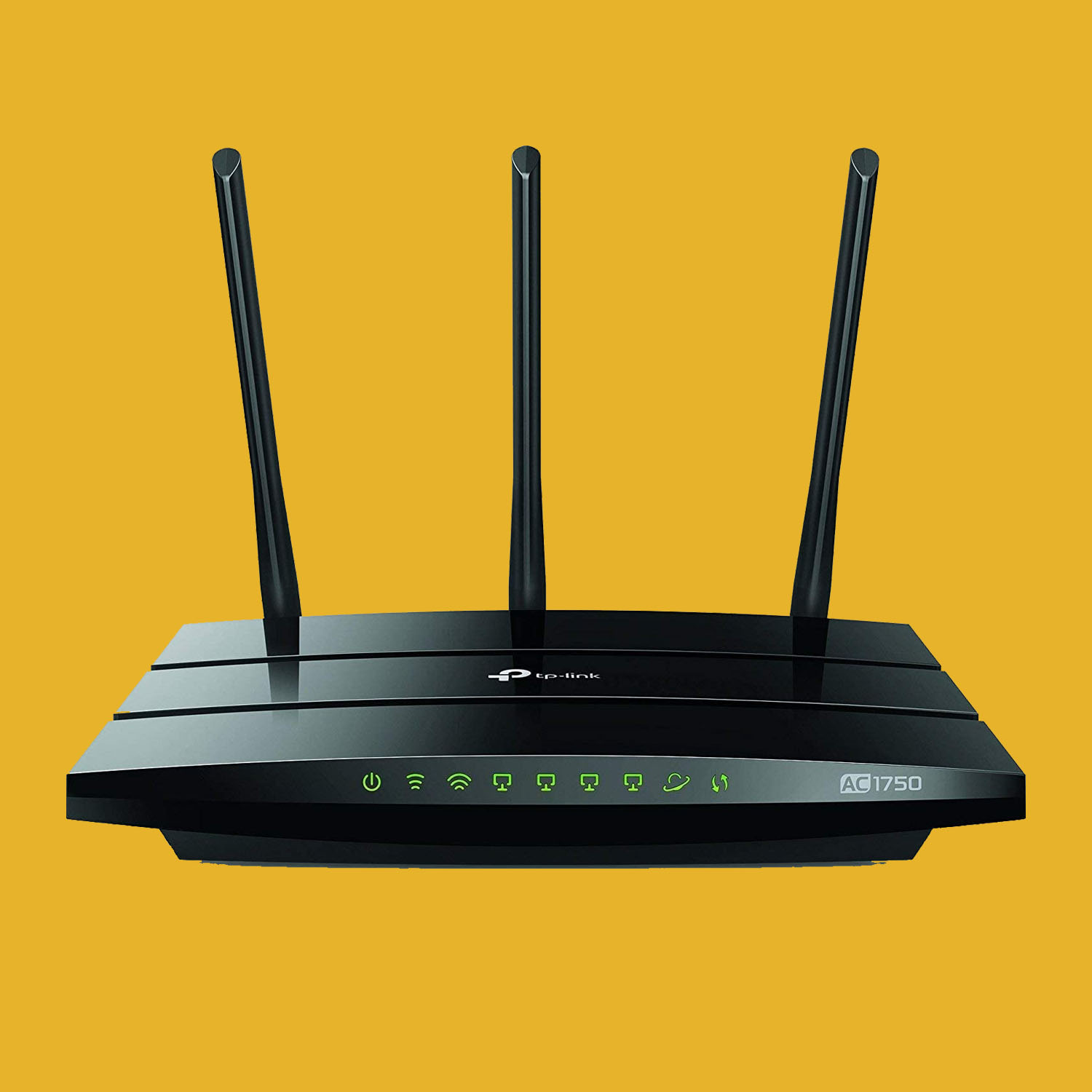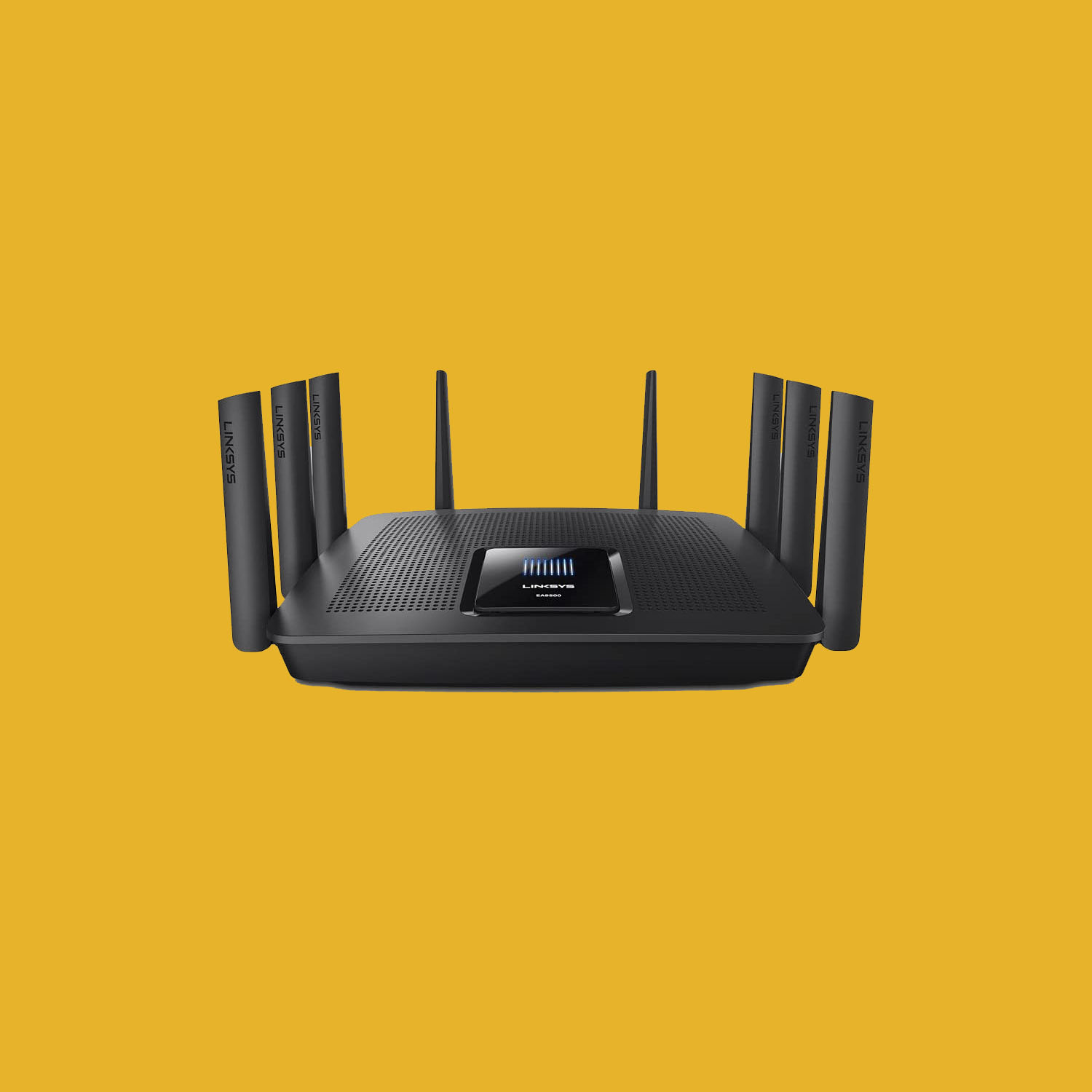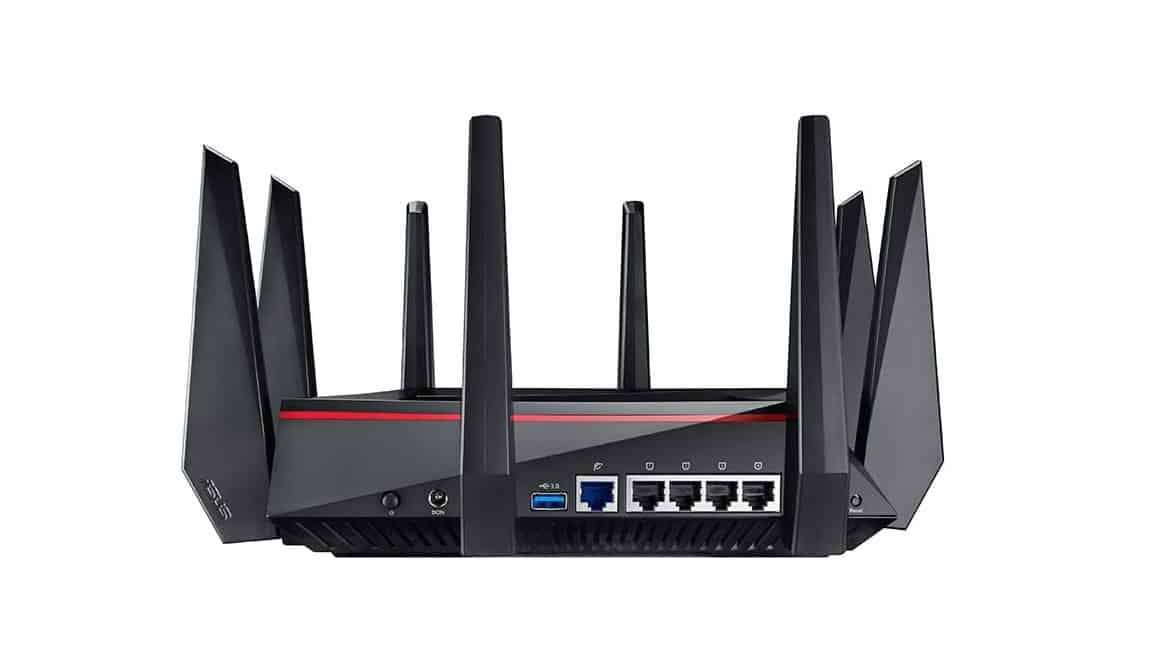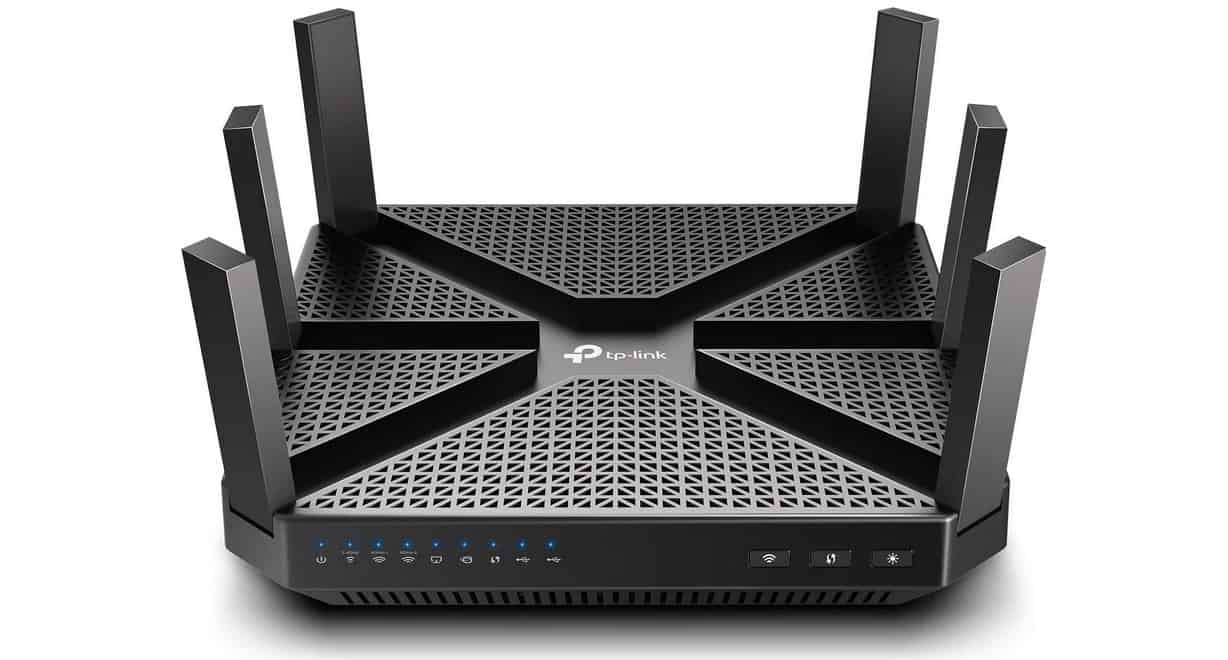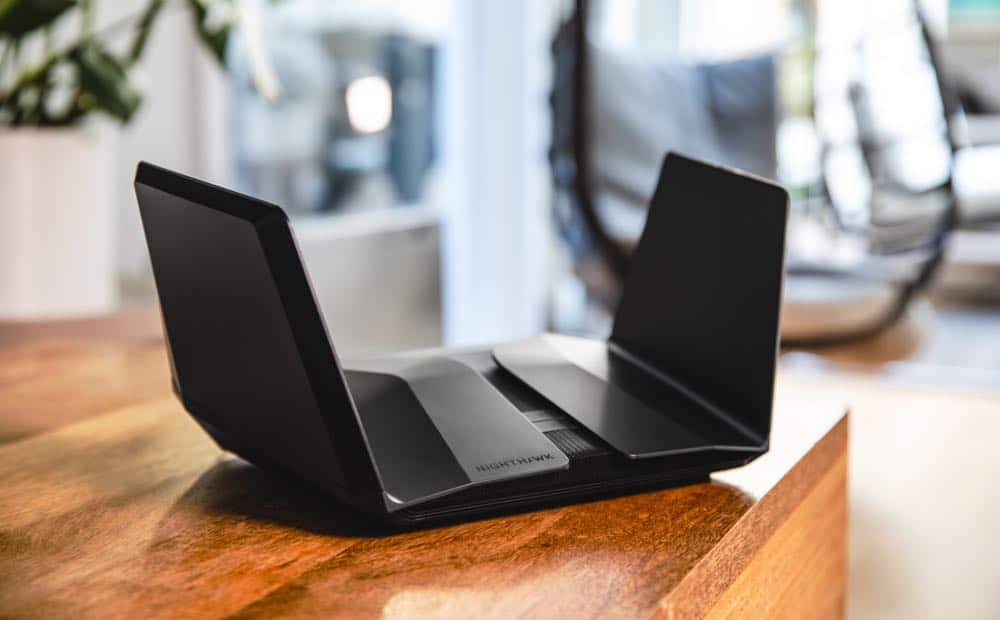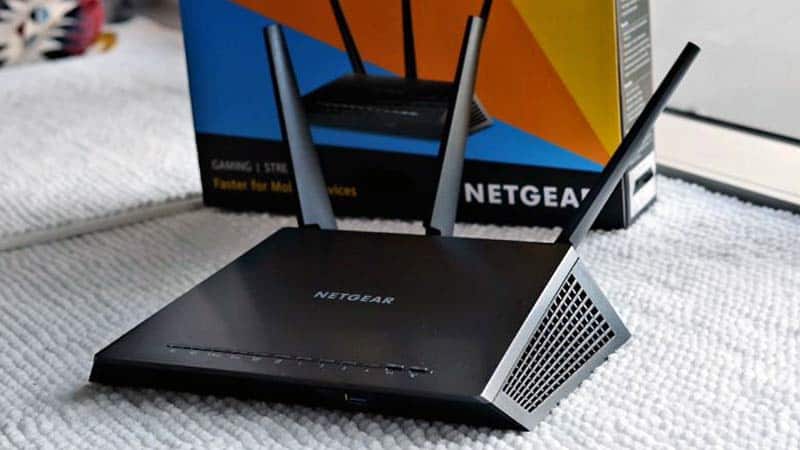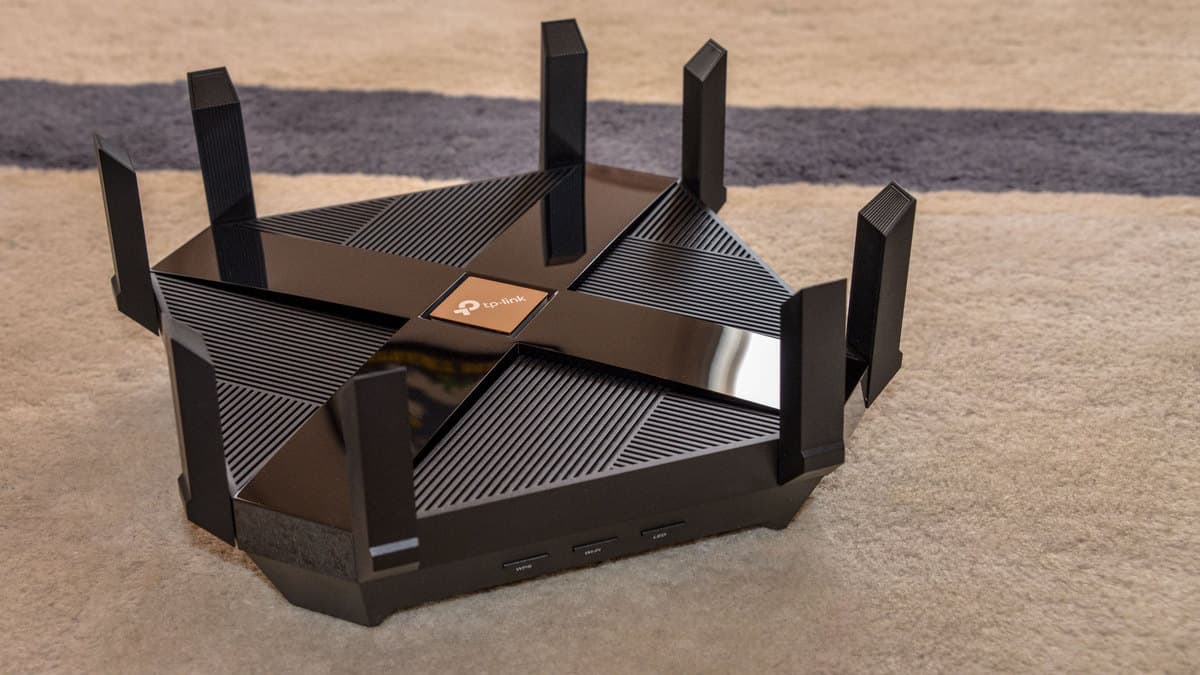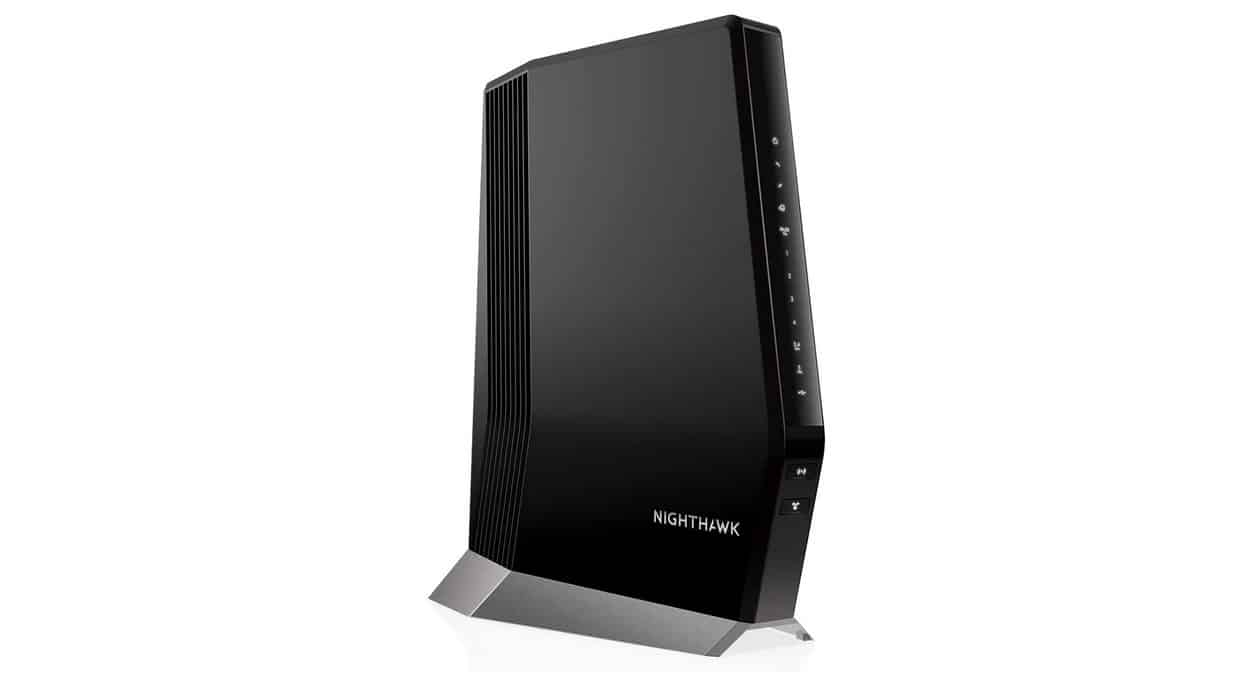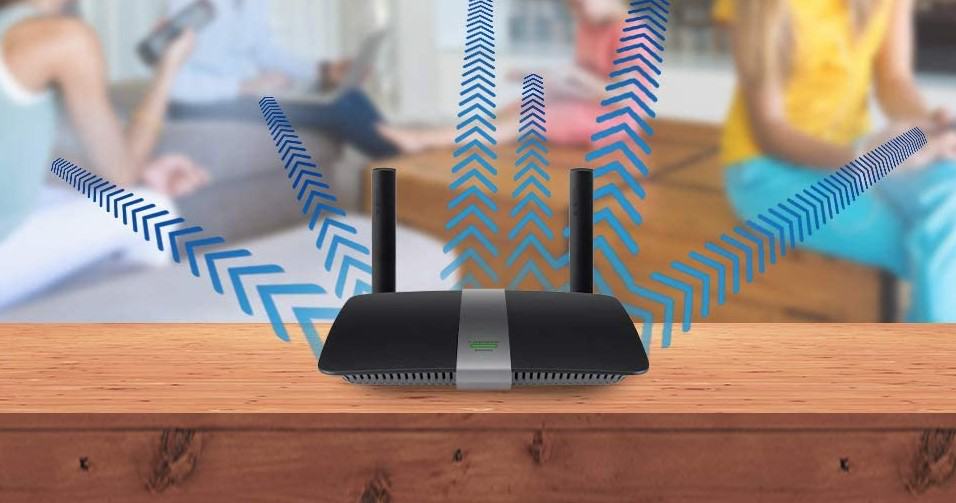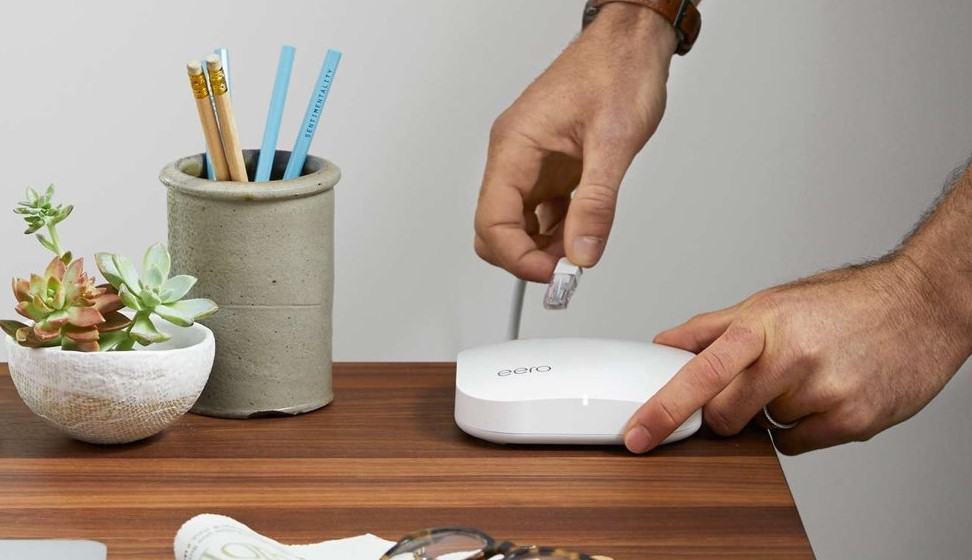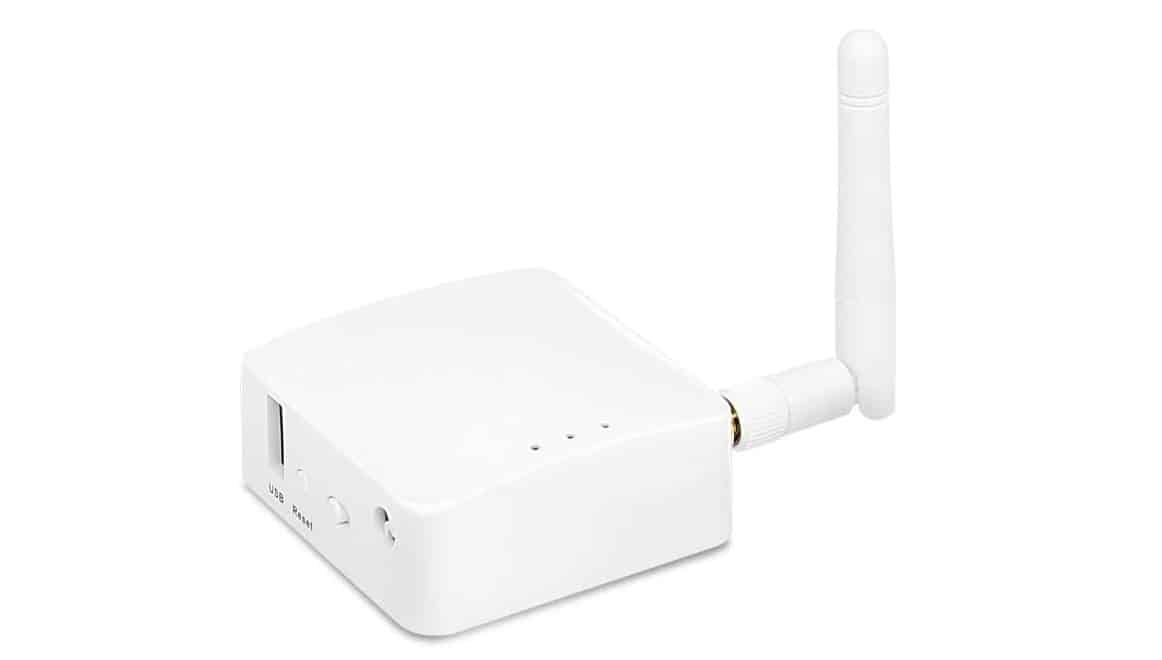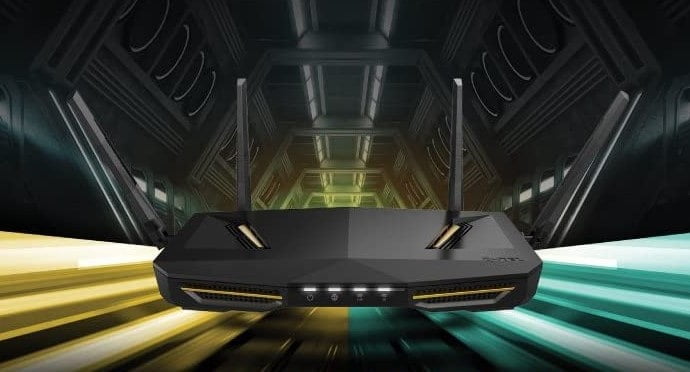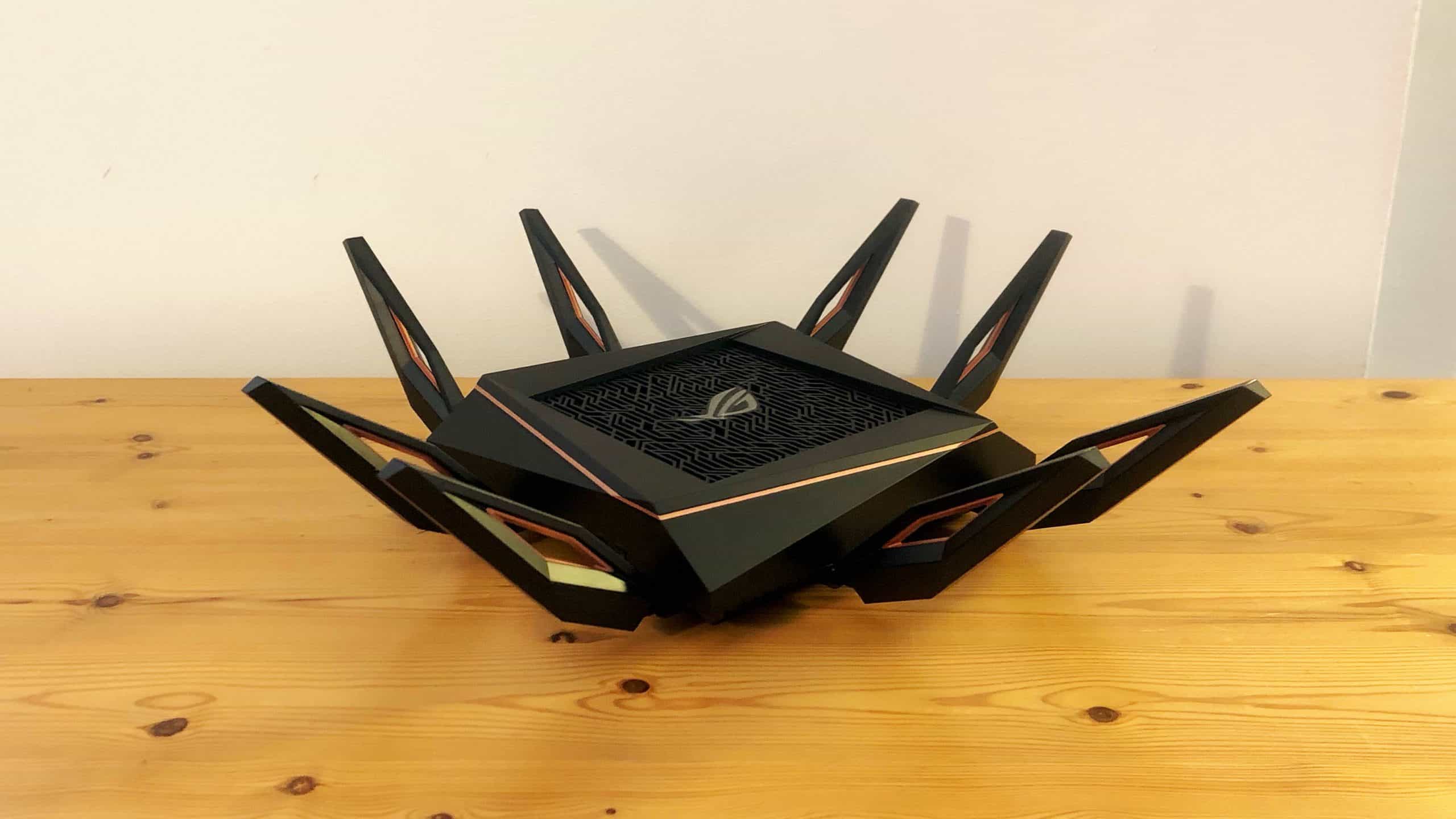If you’re shopping for the best secure router, you’re concerned about data breaches — and for good reason. Whether you’re buying a router for your small business or simply want to ensure that thieves don’t steal your banking information while paying bills one night, a good router should provide plenty of security protocols to keep your information protected and safeguard your network from unwanted access.
While user behaviors can play a large part in how easily hackers can access a network, you still want a router that offers advanced features, like VPNs, firewalls, and WiFi encryption. Likewise, you might want the option to create guest networks. This ensures that you can give internet access to guests or customers without adding their devices to your primary wireless network.
Keep reading our buying guide to the best secure router to learn more. And if other internet access issues are your concern, check out our best router buying guide.
Top Secure Routers
#1 Gryphon AC3000 Tri-band Wireless Router
Award: TOP PICK
WHY WE LIKE IT: It can support up to 100 devices and has a rapid data transfer rate for seamless streaming and online gaming. It has a comprehensive area coverage of up to 3000 Sq ft and has three Gigabit Ethernet ports.
- Rapid data transfer rate
- Wide range coverage of up to 3000 Sq ft
- Supports up to 100 connected devices
- No USB ports
The Gryphon Tower is a secure, AC3000 Mesh router that offers a comprehensive area coverage of up to 3000 Sq ft and operates on a tri-band frequency band class for maximum utility. In turn, this offers buyers a data transfer rate of up to 3Gbps, making it great for 4K streaming and lag-free multiplayer gaming. The router can be coupled with another for increased reach, and since it also comes with malware protection, all the devices connected to it will be protected from any kind of hacking. Unfortunately, it does not have any USB ports.
Like most modern routers, the Gryphon Tower can be managed remotely through the Gryphon app. The app allows users to set up parental controls, monitor Internet use, and limit access to inappropriate websites. It can support up to 100 connected devices and features three Gigabit Ethernet ports for wired connections.
#2 GL.iNet GL-MT1300 VPN Secure Travel Gigabit Wireless Router
Award: HONORABLE MENTION
WHY WE LIKE IT: It is excellent for portability due to its small size and has a rapid data transfer rate of up to 1300mbps. It can support up to 40 connected devices and has built-in Virtual Private Network support for encryption. It also has three Ethernet and one USB port.
- Great size for easy portability
- Supports up to 40 connected devices.
- Great port selection
- Antennas are not detachable
Thanks to its small size, the GL.iNet GL-MT1300 Wireless router is a compact alternative ideal for travelers. The router is based on a dual-band frequency class and offers a combined data transfer rate of up to 1300mbps. The router can support wireless connections for up to 40 devices thanks to MU-MIMO technology and has three Gigabit Ethernet ports for wired connectivity. Still, some might not like that its extended antennas are not detachable.
One of its highlight features is turning a public WiFi connection into a private one. Also, since it is compatible with more than 30 VPN providers, setting up an encrypted Internet connection will be easy. It also features a USB 3.0 port for online connections and has the Tor service pre-installed for complete anonymity when browsing. It comes with a dual-core 880Mhz processor for efficient functioning and also comes with a Micro SD card slot.
#3 NetGear NightHawk M5 5G Mobile Hotspot Router
Award: BEST FOR TRAVEL
WHY WE LIKE IT: Its battery can last for two to three days with moderate use, and it also has an LCD screen where information about status connections is displayed. It can support 32 connected devices and has a rapid data transfer rate.
- Great battery life
- Has an LCD screen that displays pertinent information
- Rapid data transfer rate for high speed connectivity
- Requires a Nano-SIM to work.
The NetGear Nighthawk M5 is a pocket-sized 5G router that supports the WiFi 6 protocol and can handle up to 35 device connections. The router is based on a dual-band frequency class and is capable of a data transfer rate of up to 1Gbps. It is powered by a Qualcomm Snapdragon X55 processor for efficient functioning and can be conveniently managed through the NetGear Mobile app. Through it, users will be able to view the connection status, monitor data usage, and set up parental controls. Unfortunately, it requires a Nano-Sim card to work.
This small router comes with one Ethernet port and has an LCD display that displays pertinent information such as connection status and network traffic. Its battery has been found to last between 24 to 36 hours with moderate use, and since it is included in the packaging, owners won’t have to incur costs to purchase another.
#4 Motorola MH7602 WiFi 6 Router
Award: BEST FOR MULTIPLE DEVICES
WHY WE LIKE IT: It can handle up to 100 simultaneous devices, making it ideal for group use. Its 2000 Sq ft range makes it great for large homes, and it can also be remotely managed through the app.
- Supports up to 100 connected devices
- Has a great range of up to 2000 Sq ft
- Can be managed remotely through the MotoSync app
- Has only one Ethernet port
The Motorola MH7602 is a round-shaped router that can handle up to 100 connected devices, and since it operates on a dual-frequency class, it is capable of a data transfer rate of up to 1 Gbps. The router has decent coverage of up to 2000 Sq ft and can be managed remotely through the Moto Sync app. For those who have larger homes, more routers can be connected to an already existing network, hence improving coverage. Unfortunately, it has only one Ethernet port for wired connections.
Its small size means owners will have more options to place it in strategic spots in the house, and since the app also comes with parental controls, owners will be able to set up filters for specific URLs, conduct tests to measure connection speeds and prevent all connected devices from cyberattacks or hacking.
#5 Linovision Industrial Unlocked 4G LTE Router
Award: BEST FOR HARSH ENVIRONMENTS
WHY WE LIKE IT: It has a heavy cast aluminum casing that is ideal for use in harsh environments. It also has support for many VPN clients and is pretty easy to set up.
- Heavy cast aluminum casing for increased durability
- Has support for a wide range of VPN clients
- Easy to use and set up
- Limited to AT&T and T-Mobile SIM Cards
This Linovision 4G LTE router comes in a nifty little size that makes it easy to fit in a pocket. It has a rugged, industrial-grade design that makes it capable of withstanding some slight mishandling and supports multiple VPN protocols to create an encrypted connection. It is also capable of cloud management and has an LED indicator area that lights up in correspondence to signal strength, SIM, Power, and System status. However, it is limited to AT&T and T-Mobile SIM cards.
The router is pretty easy to use and can be configured through its intuitive WEB Graphical User Interface or Command Line Interface commands. It comes with a cellular antenna connector for those who want to expand and improve its connectivity and features two Ethernet ports to connect non-WiFi devices.
#6 TP-Link Deco M5 WiFi System Router
Award: BEST FOR SEAMLESS PROTECTION
WHY WE LIKE IT: Its small size makes it easy to place, and since it comes with a three-year antivirus subscription, owners won’t have to fuss over any security controls during setup.
- Very easy to set up through the Deco app
- Supports voice control through Alexa
- Coverage of up to 1500 Sq ft
- Only has two Ethernet port
The TP-Link Deco M5 WiFi router is an ideal option for users who want to ensure that all the devices connected to it are protected from cyber-attacks and malware since it comes with a three-year subscription to Trend antivirus software. By itself, it can provide Internet connectivity across an area of up to 1500 Sq ft, and because of its small size, finding somewhere to place it should be pretty easy to do. Unfortunately, it only has two Ethernet ports.
The router is capable of a data transfer rate of up to 1300mbps and allows for voice control through Alexa. One of its unique features is the use of TP-Link adaptive routing technology, as this chooses the fastest path for device connections and keeps everything quick and snappy. The router is also pretty easy to set up, especially for users who have downloaded the Deco app. Through it, they’ll also be able to set up parental controls or manage the network remotely.
Beginner’s Guide to Secure Routers
What are Secure Routers
Even the most budget-friendly router on the market comes with basic security protocols to ensure that your wireless network isn’t porous. This is because, unlike wired connections, wireless networks are easily discovered as long as someone is within proximity to the signal. However, it’s up to the homeowner or small business owner to activate many of those protocols.
The most secure routers, like the Netgear Nighthawk or the TP-Link Archer, feature robust security protocols. This makes it harder for nefarious individuals to gain access to your network and potentially sensitive information, such as financial details or even health records. For example, a hallmark of a secure router is if it provides virtual private network (VPN) support.
Often viewed as a feature you only need when you’re trying to access restricted content in countries with extreme firewalls, VPNs also ensure that your sensitive information isn’t easily accessed. Thus, security is a smart feature to prioritize if you routinely use your home network to manage banking, bill pay, or craft sensitive correspondence that you wouldn’t want to be leaked.
Likewise, secure routers also allow you to delegate and create additional networks. Known as a guest network, this gives you the freedom to allow trusted individuals to use your internet without having their devices connected to your main network. Depending on your preferences, you can further restrict that access by setting time limits or placing bandwidth thresholds. In other words, you could effectively throttle your guests’ internet access to ensure that their browsing habits don’t interfere with your internet needs.
Secure Routers vs Other Routers
All routers come with some form of security protocol. But the most secure routers offer a more comprehensive range of solutions, which everyone should be using in reality. For example, WiFi encryption is fairly standard and is found on cheap routers, rental routers, and, of course, even the most secure routers. Known formally as WiFi Protected Access 2 (WPA2), this feature ensures that connections established between devices and the wi-fi router are encrypted.
But for cheaper routers, this might be the extent of your security protocols. In contrast, many new secure routers now go a step further and support WPA3, a new encryption standard designed for Wi-Fi 6.
Also, note that not all routers support guest network creation. As we mentioned, this lets you create a secondary network that’s essentially parallel to your primary network — but separate. While people can use the internet through the guest network, they can’t gain access to your connected wi-fi devices paired with your primary network.
Secure routers shine the best when it comes to firewalls and VPNs. As we mentioned earlier, VPNs ensure that hackers can’t stumble onto your network while you’re handling sensitive personally-identifying information. Just like VPN support, firewalls aren’t a standard feature.
Although almost all modern routers support private IP addresses or network address translation, a firewall leverages more enhanced protocols, such as data packet inspection, to ensure that viruses and malware aren’t traveling into your network. Similarly, the most secure routers have firewalls that control inbound and outbound data flows.
Other protocols that aren’t available with a basic router include enhanced access, parental controls, and automated firmware updates. Likewise, the rise of smart home-connected devices also creates new entry methods for hackers. And a very good secure router should have protocols in place to manage background data transfers that routinely occur between your connected device and the parent company’s server.
How Secure Routers Work
Like basic routers, a secure router serves as a middleman device. It allows for a home wireless network to be established by connecting with your Internet Service Provider’s (ISP’s) external routers.
But in many cases, these routers provide enhanced settings during the installation process, which allows for increased security features. For example, you often have the option to rename your wi-fi network, create new network passwords (which you absolutely should) and establish VPNs, or activate firewalls.
Similarly, a secure wireless router might also have an accompanying online portal or mobile app that allows you to create guest networks, place parental control restrictions that blacklist specific websites, or establish approved times when your child can browse the internet on specific devices.
Why You Should Buy a Secure Router
Considering that we live in an age where it’s nearly impossible not to rely on some type of connected device, everyone should be concerned about wireless network security. Unlike wired connections, WiFi is porous and can be easily hacked if the proper steps aren’t taken.
Are Secure Routers Worth Buying?
- You Live in a Densely Populated Area: Not everyone lives in the ‘burbs. Some of us live in densely packed cities, so that you may live in an apartment building with hundreds of other residents. All those wireless networks in one place can look like easy pickings for a hacker.
- You Want Unrestricted Internet Speeds: Again, VPNs aren’t just for when you’re traveling abroad and trying to check Facebook in a country that blocks it. Even in the U.S., ISPs are known for throttling internet speeds, especially during heavy traffic periods. A VPN can protect you from that kind of interference.
- You’re Concerned About Data Breaches: You don’t have to be actively logged in to your account on your bank or credit card’s website for a hacker to access your financial information. A poorly protected WiFi network can mean that a hacker can gain remote access, breach your Netflix account, skim your payment details, and go on a shopping spree.
Why Secure Routers May Not Be for You
- You Don’t Understand How to Install Security Protocols: There are very few valid reasons not to have a secure router. And in truth, if you’re not particularly tech-savvy, you should hire a trusted professional or your very savvy niece or nephew to help get you protected online.
- They’re Too Expensive for Your Budget: Nowadays, almost every router has WPA2 support. This is a bare minimum option. While you’ll still need to be smart about your internet habits — and at a minimum change your wi-fi password from the factory preset — if you can’t afford a more expensive secure router, you can make do with a simpler model.
- You’re Currently Deployed: If you’re deployed with the U.S. military, it’s safe to say that the base where you’re stationed probably has better security protocols than what’s available for the average consumer. But consider getting a secure router once you’re discharged.
How Long Will Secure Routers Last?
Even the most secure router with state-of-the-art security protocols has a shelf life. Just like the best gaming routers for the PS4 or wired routers, you should expect to squeeze three to five years of sustained use out of a secure router before it’s time to replace it.
This has nothing to do with the quality of your router and everything to do with technology and evolving security protocols. Because you’re getting a secure router to prevent data breaches, you have to know that hackers are always figuring out ways to outsmart and defeat whatever is the current brand security standard for internet network security.
As new protocols are developed, and hackers easily thwart old ones, your router won’t be as effective at securing your network or protecting your information. In this scenario, your old secure router will be more of a liability and can become more of a target for hackers.
How to Choose a Secure Router
With a secure router, you’re still going to be concerned about other core features, such as supported speeds or MU-MIMO technology. But you’re going to want to pay particular attention to security protocols that can prevent unwanted access to your network, whether from random or known users.
Best Secure Routers Key Factors to Consider
1. Is the router compatible with your ISP?
In most cases, if you’re thinking of upgrading to a secure router, you’re going to use it to replace the rental router your ISP offers. So, before you perform a deep dive into security specifications, make sure that your router is compatible with your ISP. Usually, you can go to your ISP’s website and quickly check to ensure that the router is supported.
2. What internet speeds does the router support?
Again, start with the basics before you get your heart set on a router that isn’t compatible. You want a router that is at least as fast as your current internet plan speeds. However, if you’re trying to achieve that three to five-year shelf life for a router, you’ll want one that is faster than your current internet plan.
This way, when your ISP boosts your plan’s speed (which they often do) up from 100 Mbps to 200 Mbps, your secure router will also be the best router for 200 Mbps.
3. What wireless security protocol is supported?
At a minimum, you want a router that supports WPA2, the current standard. If you’re focused on futureproofing your investment, look for models that support WPA3, which is compatible with WiFi 6.
Note that a WPA2 router will support the lesser protocols WPA and WEP. Likewise, A WPA3 router will support WPA2 and lesser protocols. However, avoid any router that only supports WPA or WEP as both are obsolete and easily breached.
4. Does your router support VPNs?
VPN support isn’t standard, nor is it a necessity if you’re concerned about security. But it’s an enhanced feature that, along with protecting your network, can ensure you’re not the unfortunate victim of ISP throttling by masking data movement on your network.
5. Does the router have a firewall?
A router that doesn’t feature a firewall function shouldn’t be in the running as you shop for a secure router. Firewalls are often disabled by default when you first use a router. So, you may need to access your router’s settings to activate this feature. However, for a truly secure router, look for a firewall that screens incoming and outgoing data.
6. Is guest network creation supported?
Again, this isn’t a must-have feature for a router to be considered secure, but it tends to be a common feature among secure routers. Guest networks ensure that occasional users cannot directly access other connected devices on your network by creating a parallel wireless network through your router.
For the end-user, the experience is seamless, and they won’t be able to tell whether or not they’re on your primary or secondary network. Premium routers may even allow you to create more controls for the guest network, such as time limits or even bandwidth throttling to prevent people from abusing your internet.
7. Are the controls easy to use?
The last thing you want is a router that requires an information technology certificate to operate. Even the most secure router should have a user-friendly online interface that makes adjusting settings, creating guest networks, or managing parental controls easy to achieve. Many routers even come with companion apps which makes protecting your network very user-friendly.
8. Are there parental controls?
Whether you want to protect your children from questionable content or you want to ensure that they’re actually doing their homework, parental controls can make this an easy task. You can block websites or even create limited internet access on a per-device basis.
9. Does your router support beamforming or MU-MIMO technology?
A secure router is irrelevant if your internet experience is terrible. Beamforming is a feature that’s important if you want to ensure that heavy-data devices like gaming consoles or connected televisions have a stable wireless connection to the network. Typically, if a router supports beamforming, there are going to be one or more antennas.
Similarly, MU-MIMO stands for multi-user, multiple-input, multiple-output. In short, it means that multiple users can use the internet simultaneously without experiencing lag. Meanwhile, any heavy-data devices like gaming consoles are prioritized.

![Best Secure Routers in [year] 1 best secure router](https://www.gadgetreview.dev/wp-content/uploads/best-secure-router-image.jpg)


![Best Secure Routers in [year] 2 Gryphon Tower Super-Fast Mesh WiFi Router – Advanced...](https://m.media-amazon.com/images/I/11RfLwTgUsL._SL160_.jpg)
![Best Secure Routers in [year] 3 GL.iNet GL-MT1300 (Beryl) VPN Wireless Little Travel...](https://m.media-amazon.com/images/I/314QXyDxS5L._SL160_.jpg)
![Best Secure Routers in [year] 4 NETGEAR Nighthawk M5 5G Mobile Hotspot with WiFi 6...](https://m.media-amazon.com/images/I/41TQUi7OdSL._SL160_.jpg)
![Best Secure Routers in [year] 8 Our #4 Pick is the Motorola MH7602 WiFi 6 Router](https://m.media-amazon.com/images/I/11s8sIfQo3L._SL160_.jpg)
![Best Secure Routers in [year] 9 Our #5 Pick is the Linovision Industrial Unlocked 4G LTE Router](https://m.media-amazon.com/images/I/31egC4ScevL._SL160_.jpg)
![Best Secure Routers in [year] 11 Our #6 Pick is the TP-Link Deco M5 WiFi System Router](https://m.media-amazon.com/images/I/21XG+EnGhYL._SL160_.jpg)


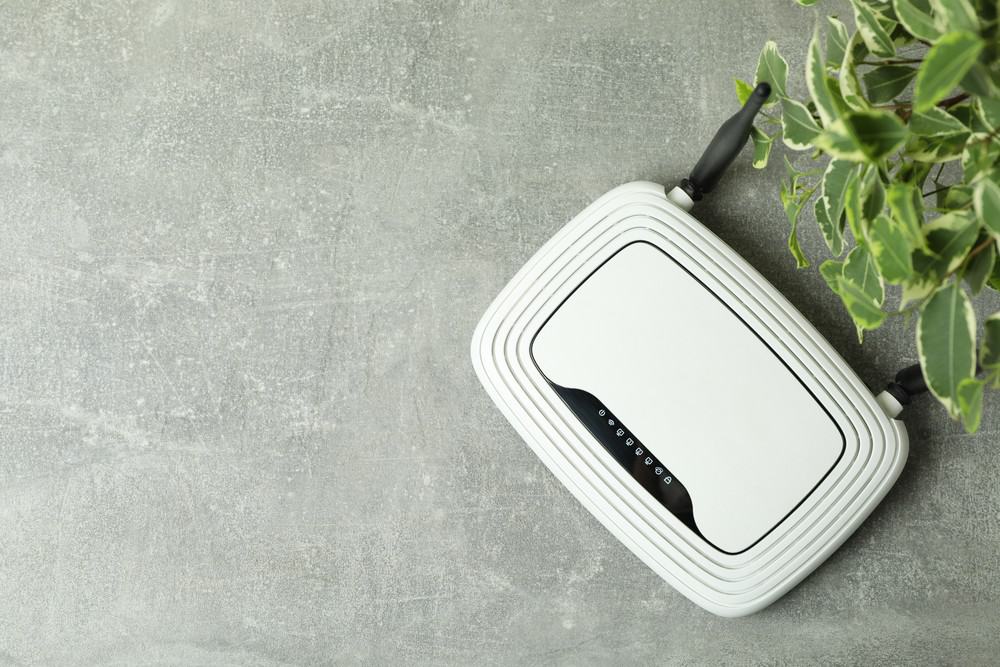
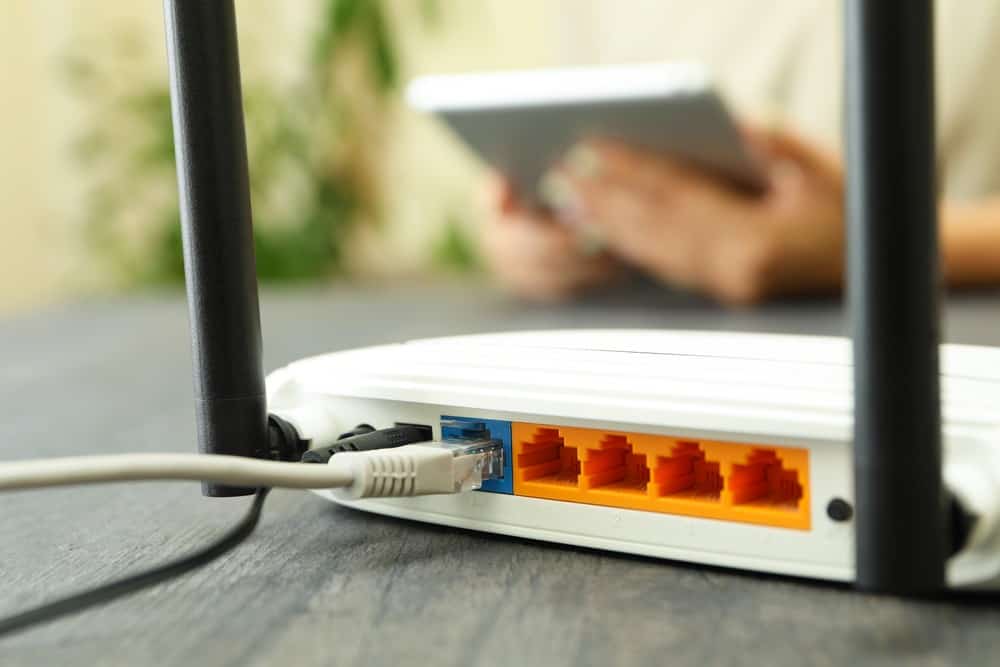
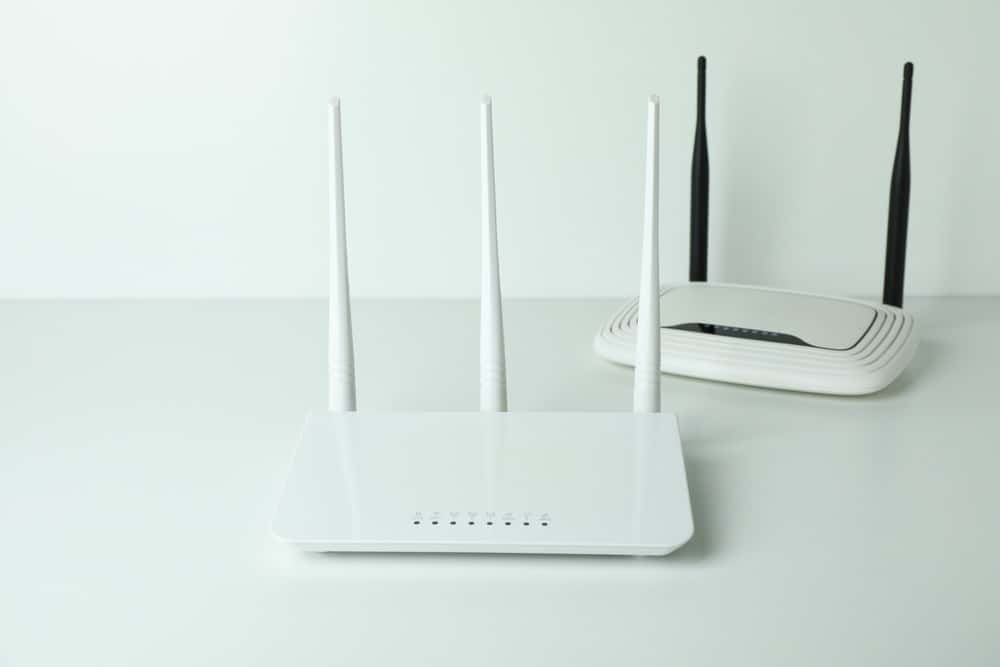
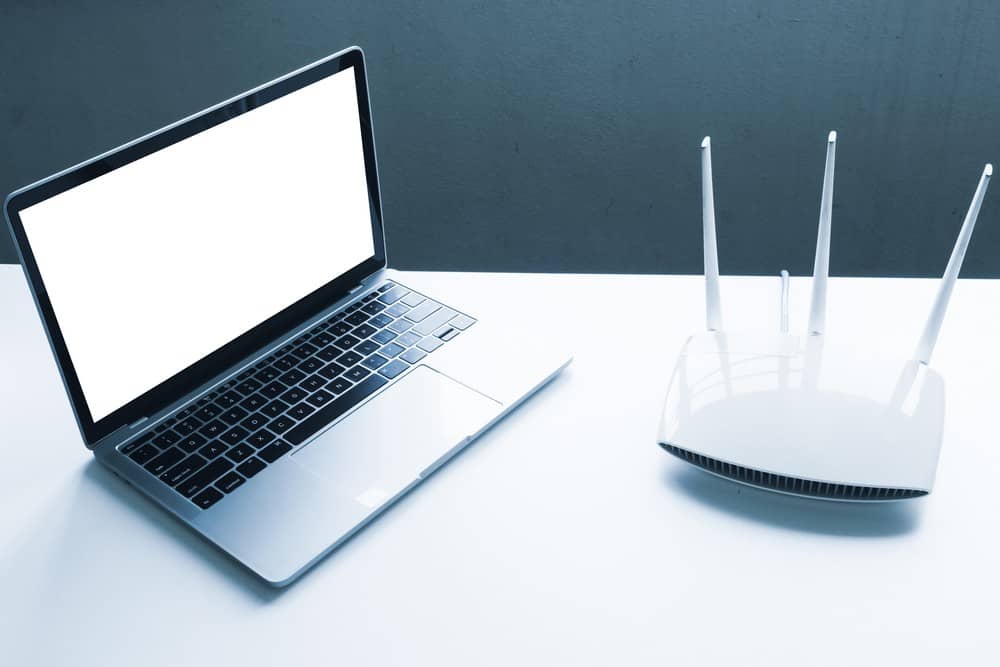
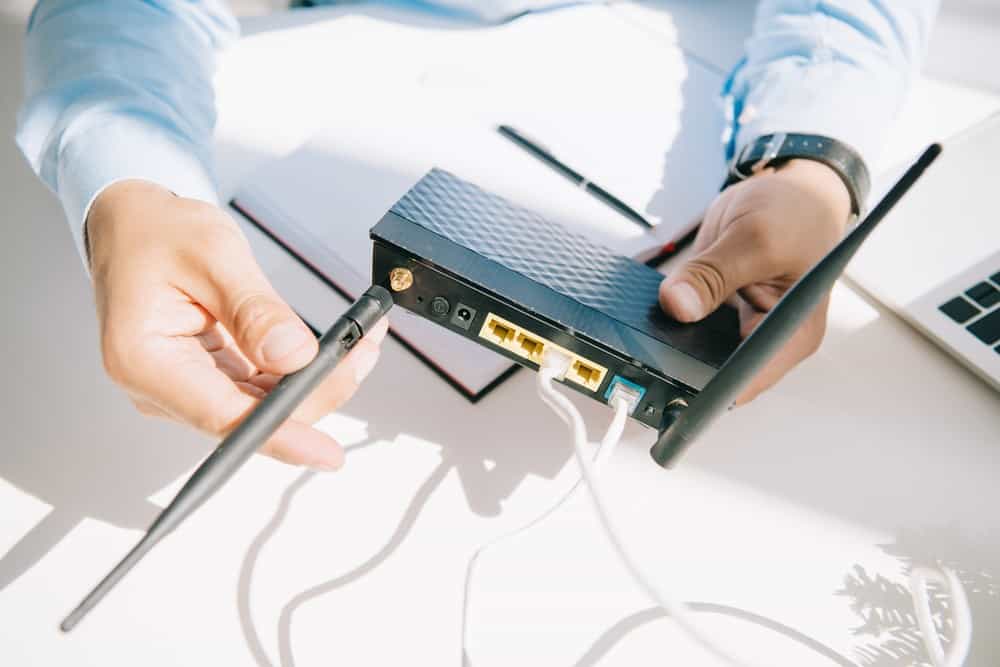

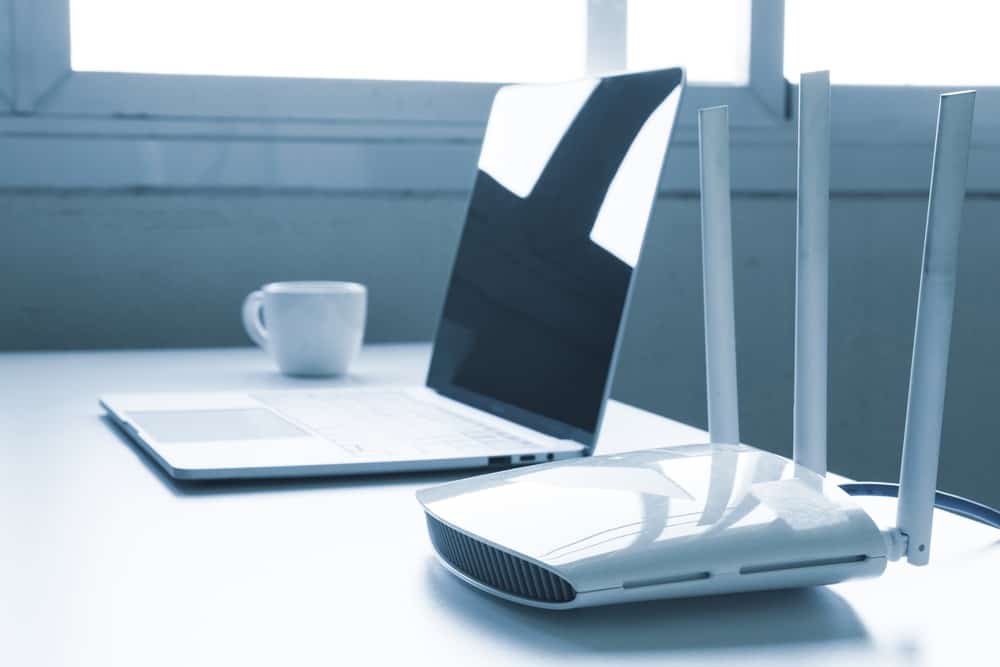

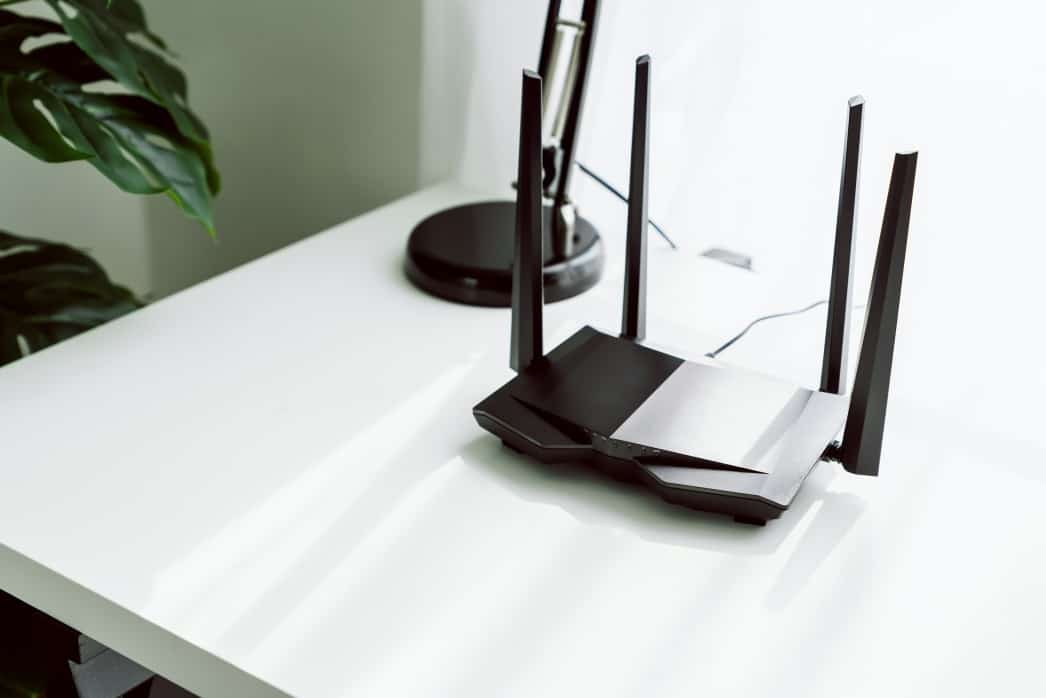
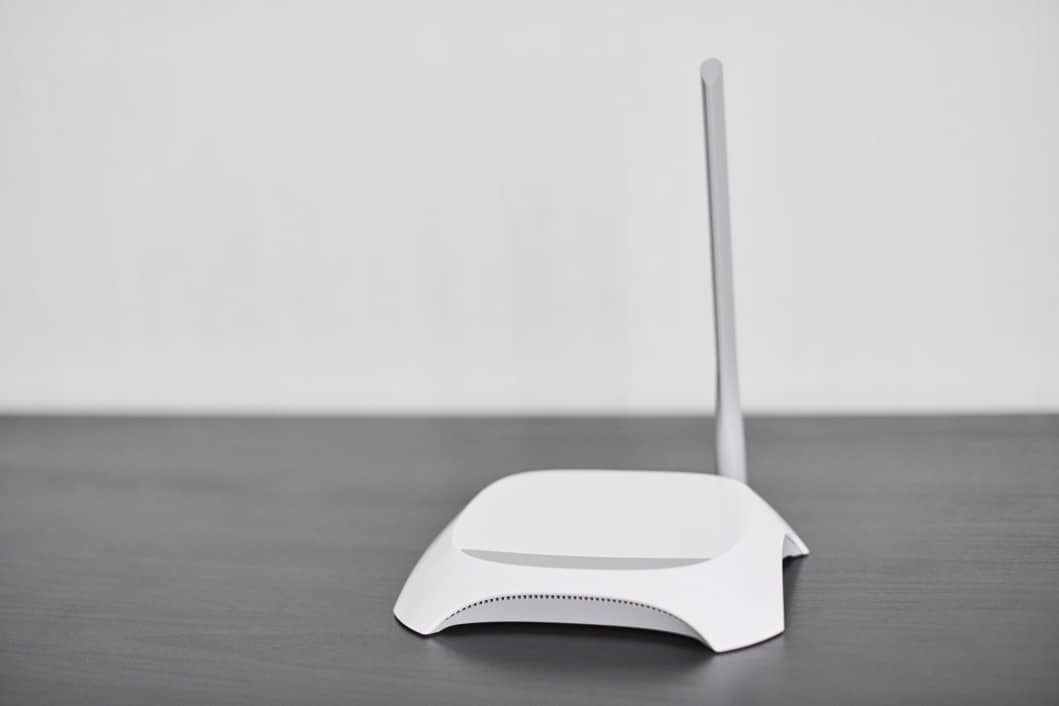
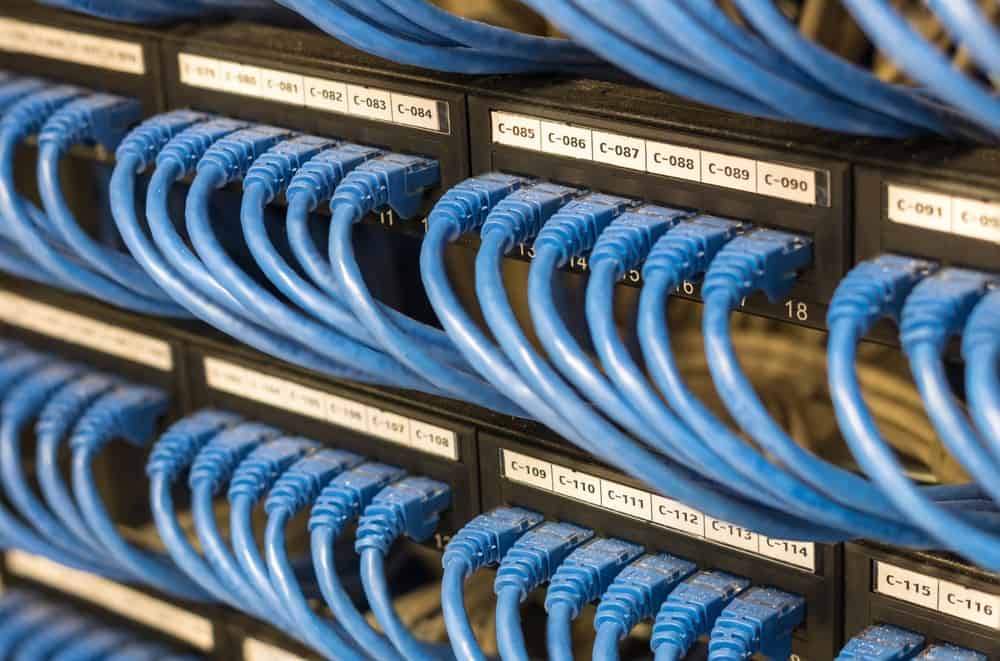
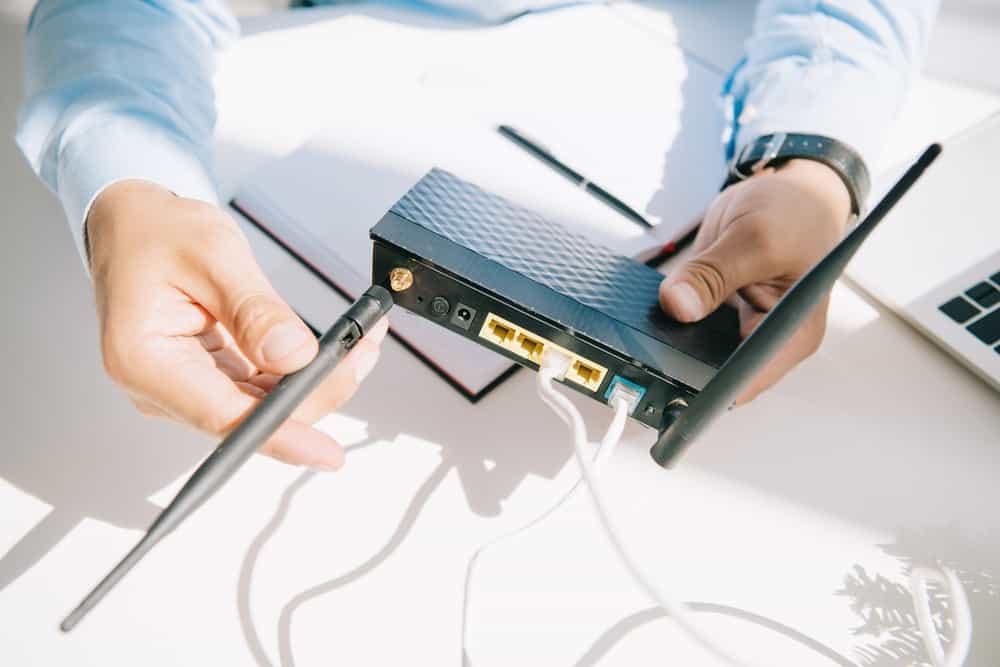

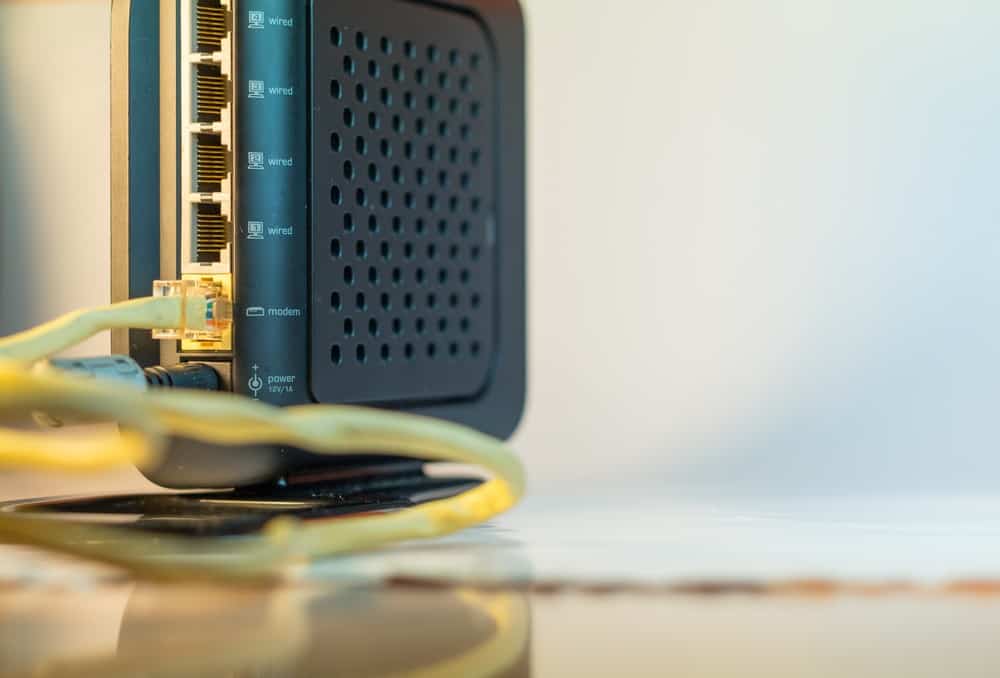

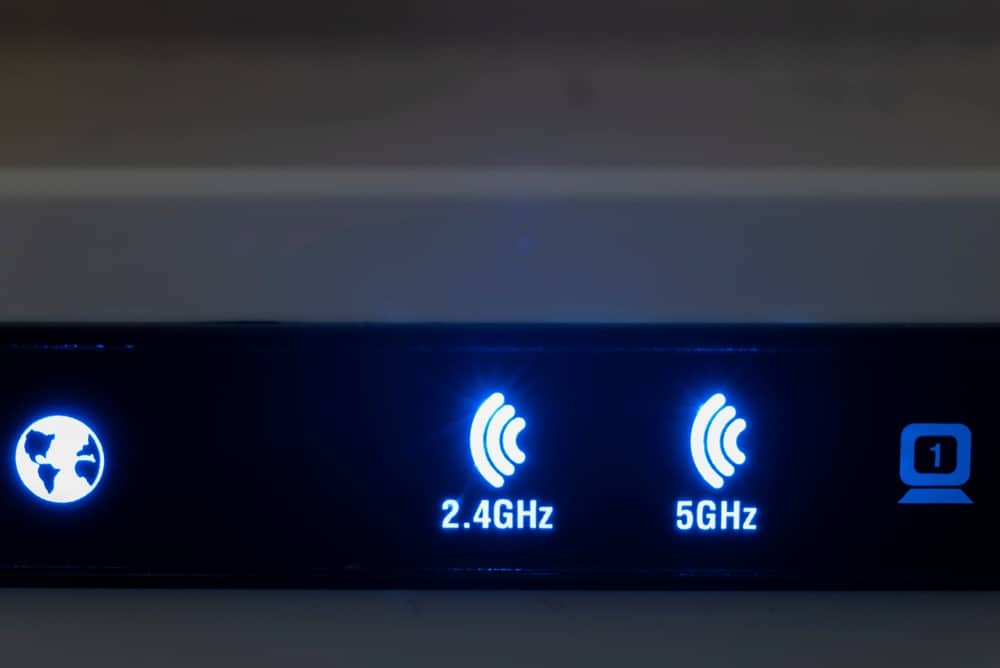
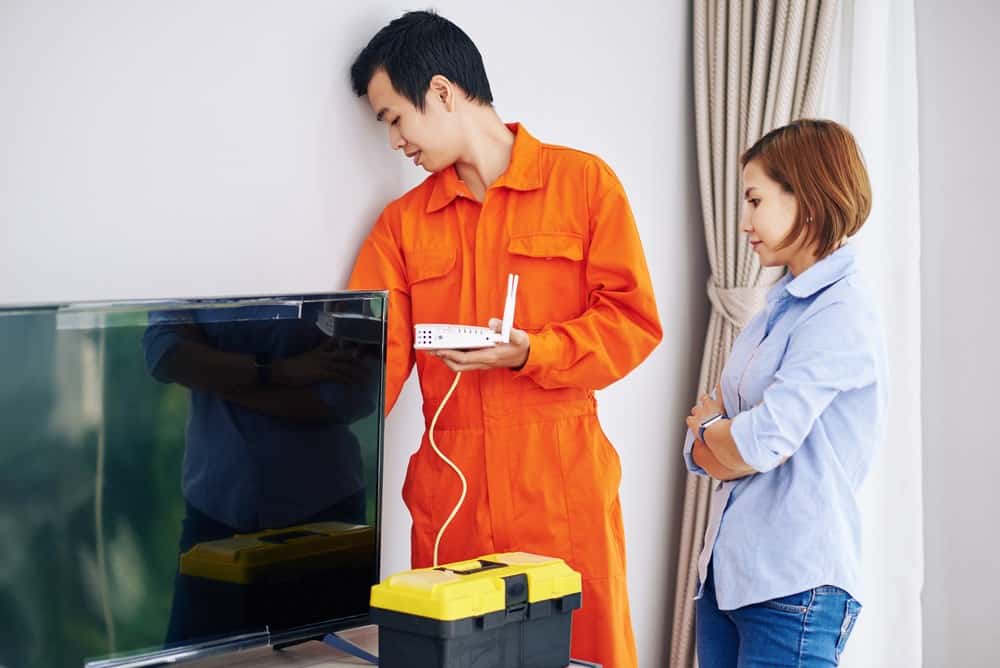
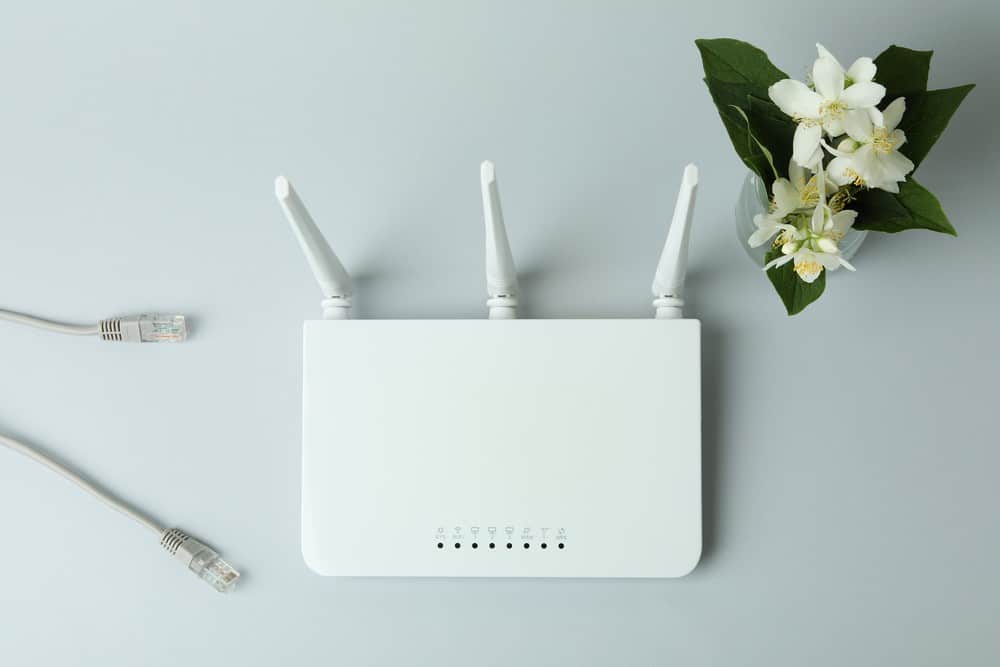
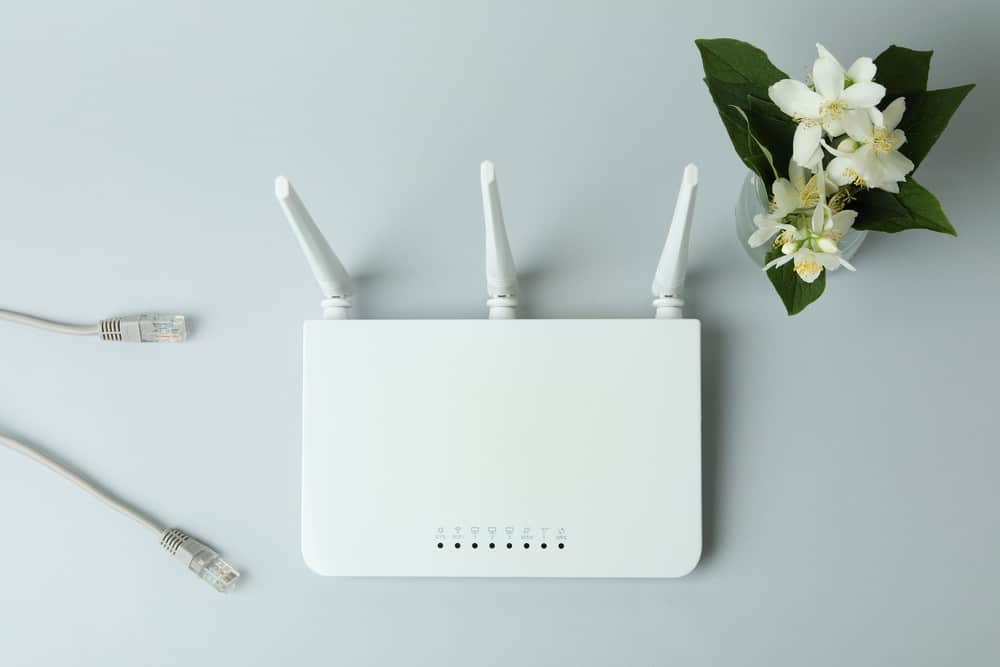

![Best BenQ Monitors in [year] 32 Best BenQ Monitors in 2026](https://www.gadgetreview.dev/wp-content/uploads/best-benq-monitor-image.jpg)
![Best Wifi Extenders For FiOS in [year] 33 Best Wifi Extenders For FiOS in 2026](https://www.gadgetreview.dev/wp-content/uploads/best-wifi-extender-for-fios-image.jpg)
![Best Fiber Optic Routers in [year] 34 Best Fiber Optic Routers in 2026](https://www.gadgetreview.dev/wp-content/uploads/best-fiber-optic-router-image.jpg)
![Best VoIP Routers in [year] 35 Best VoIP Routers in 2026](https://www.gadgetreview.dev/wp-content/uploads/best-voip-router-image.jpg)
![Best Routers for 200Mbps in [year] 36 Best Routers for 200Mbps in 2026](https://www.gadgetreview.dev/wp-content/uploads/best-router-for-200mbps-image.jpg)
![Best Routers for Optimum in [year] 37 Best Routers for Optimum in 2026](https://www.gadgetreview.dev/wp-content/uploads/best-router-for-optimum-image.jpg)
![Best Routers for Apple in [year] 38 Best Routers for Apple in 2026](https://www.gadgetreview.dev/wp-content/uploads/best-router-for-apple-image.jpg)
![Best Routers for Frontier FIOS in [year] 39 Best Routers for Frontier FIOS in 2026](https://www.gadgetreview.dev/wp-content/uploads/best-router-for-frontier-fios-image.jpg)
![Best Routers for Google Fiber in [year] 41 Best Routers for Google Fiber in 2026](https://www.gadgetreview.dev/wp-content/uploads/best-router-for-google-fiber-image.jpg)
![Best Routers for Cox in [year] 42 Best Routers for Cox in 2026](https://www.gadgetreview.dev/wp-content/uploads/best-router-for-cox-image.jpg)
![Best Asus Routers in [year] 43 Best Asus Routers in 2026](https://www.gadgetreview.dev/wp-content/uploads/best-asus-routers-image.jpg)
![Best Linksys Routers in [year] 44 Best Linksys Routers in 2026](https://www.gadgetreview.dev/wp-content/uploads/best-linksys-routers-image.jpg)
![Best Routers for CenturyLink in [year] 45 Best Routers for CenturyLink in 2026](https://www.gadgetreview.dev/wp-content/uploads/best-router-for-centurylink-image.jpg)
![Best WiFi Routers for Multiple Devices in [year] 46 Best WiFi Routers for Multiple Devices in 2026](https://www.gadgetreview.dev/wp-content/uploads/best-wifi-router-for-multiple-devices-image.jpg)
![Best Wired Routers in [year] 47 Best Wired Routers in 2026](https://www.gadgetreview.dev/wp-content/uploads/best-wired-router-image.jpg)
![Best Routers for 4K Streaming in [year] 48 Best Routers for 4K Streaming in 2026](https://www.gadgetreview.dev/wp-content/uploads/best-router-for-4k-streaming-image.jpg)
![Best Cisco Routers in [year] 49 Best Cisco Routers in 2026](https://www.gadgetreview.dev/wp-content/uploads/best-cisco-routers-image.jpg)
![Best eero Routers in [year] 50 Best eero Routers in 2026](https://www.gadgetreview.dev/wp-content/uploads/best-eero-routers-image.jpg)


